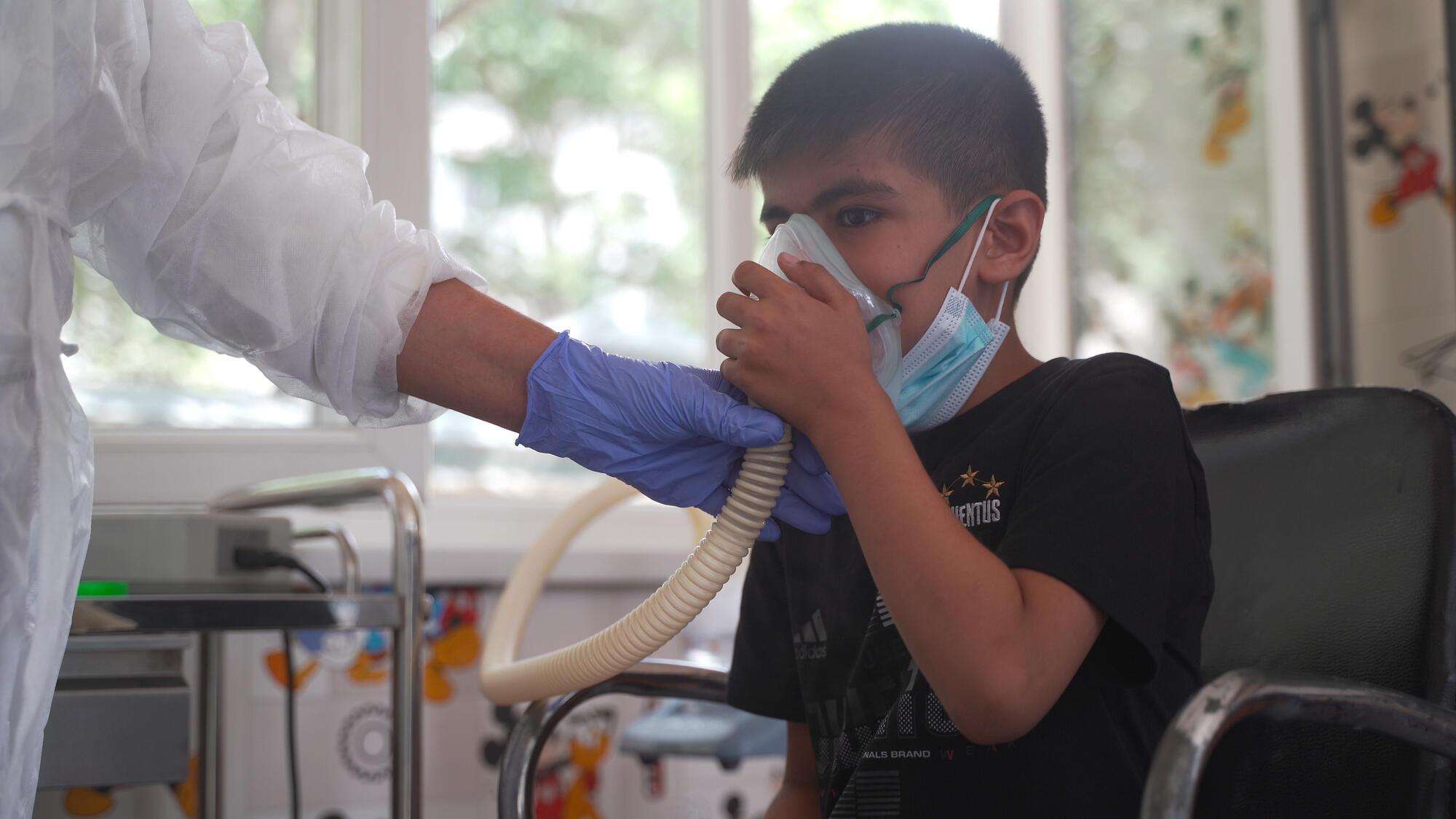As tuberculosis (TB) continues to be a major health concern in Tajikistan, the international medical humanitarian organization Doctors Without Borders/Médecins Sans Frontières (MSF) remains committed to decreasing TB morbidity and mortality among children and adults by diagnosing people and getting them on effective treatment.
Diagnosing children, however, can be complicated.
“Children have different symptoms of TB than adults,” says Dr. Zufliya Dusmatova, who works with MSF in Tajikistan. “The symptoms in children often resemble other diseases and, therefore, pediatricians might treat children for viruses or diseases like a cold or bronchitis. Additionally, children are usually not able to express what exactly hurts and what problems they are suffering from.”
If TB is not diagnosed in time, it may progress rapidly, and, in the worst cases, result in death. Another issue is that TB often resides in other parts of the body than the lungs in children—such as in the intrathoracic lymph nodes—and therefore is undetectable by X-ray. A computerized tomography (CT) scan that could discover such type of TB is too expensive in many of the places facing high TB burdens like Tajikistan and isn’t widely used.
Treating children with TB
In an effort to treat and cure more children with TB in Tajikistan, MSF and the Tajik Ministry of Health and Social Protection are running an innovative project called the family direct observation therapy (F-DOT) program. This program allows patients to be treated at home under direct observation of a family member rather than traveling to a hospital for frequent appointments.
Traditional TB treatment takes at least several months and often requires daily visits to health facilities—oftentimes located far from people's homes. With F-DOT, MSF teams provide monthly medical check-ups along with medication, food, and psychological support that helps kids and their families to endure the difficult treatment.
“Before F-DOT, we had to convince the parents that their child must stay in the hospital even if they were not infectious.” Dr. Dusmatova said. “It was difficult because the hospital might be far away, and parents don’t always have money to go on a visit. A hospital is a hospital—no one wants to stay there for three or four months.”
In 2017, MSF developed guidance for the diagnosis and treatment of TB in children in Tajikistan that recommends shorter treatment regimens with newer drugs delamanid and bedaquiline, which have fewer side effects, are less toxic than older treatments, and are better tolerated by children. These guidelines developed by MSF were adopted by the Tajik Ministry of Health, making the country one of only two so far in the Eastern Europe and Central Asia region to include World Health Organization (WHO) recommendations in their national guidelines.
“Compared to the medicines we used before, it is a huge difference,” Dr. Dusmatova said. “Before, the children had to get injections that were painful and had serious side effects, such as loss of hearing. Other medicines caused nausea, vomiting, or diarrhea. Newly recommended drugs by the WHO don’t have these side effects—or they only have them to a very small extent.”
The mental toll of pediatric TB
For children in particular, TB can be a very confusing disease. Plus, taking multiple drugs every day for at least six months is challenging—whatever one’s age—and some of the drugs themselves can be disruptive to patients’ mental health. To help patients cope, MSF provides specialized care and counseling for those undergoing TB treatment, as well as for their families and caregivers.
“Children are educated about various emotions, how and where they may feel them in their body, what triggers them and also how to calm down or feel better and comforted,” said Tanya Morshed, MSF mental health activity manager in Tajikistan. “We address the feelings of the caregivers as well. The counselors validate their feelings and normalize their reactions during the difficult disease process and recovery.”
Fighting stigma and misinformation around TB is another goal of MSF’s project in Tajikistan.
“One of the medications may make a patient’s skin change color and they may be bullied or harassed by some of their peers about it,” Morshed said. “If they are teenagers—especially female teenagers—it can affect their chances of getting married, because other families may say, ‘No, there is something wrong with this family. We don’t want them to bring TB to ours.’ All these issues can affect their future and can cause sadness, anxiety, stress, and isolation.”

